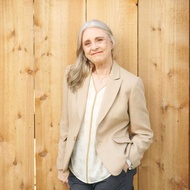Organization Criminally Attacked for Defending Children | Dr. Jill Simons on The Dr J Show ep. 185
Dr. Jill Simons is the Executive Director of the American College of Pediatricians. She is a Board-Certified Pediatrician. She graduated from the University of Wisconsin Medical School and also completed residency at the University of Wisconsin. She has been in private practice in Minnesota ever since.
Dr. Simons has served as Chairman of Pediatrics and helped establish NICU and pediatric trauma programs. Dr. Simons is also Fellow of the American Academy of Pediatrics and a member of the American Academy of Sleep Medicine.
Website:
www.ACPeds.org
ACPeds Position Statements:
https://acpeds.org/positions
ACPeds on chemical abortion:
https://acpeds.org/position-statements/chemical-abortions-with-and-without-medical-supervision
ACPeds on the teen brain:
https://acpeds.org/position-statements/the-teenage-brain-under-construction
ACPeds on gender dysphoria in children:
https://acpeds.org/position-statements/gender-dysphoria-in-children
Dr. Michelle Cretella on The Dr J Show:
www.YouTube.com/watch?v=LQovehloA2k
ACPeds’ Dr. Quentin Van Meter on The Dr J Show:
www.YouTube.com/watch?v=sv_4j3oJEws
Facebook:
@AmericanCollegeofPediatricians
Instagram:
@americancollegeofpediatricians
Twitter:
@ACPeds
“Since April 24, the American College of Pediatricians has been facing an ongoing, coordinated, malicious cyberattack by hackers on our key technology structures, databases, and our financial accounts. This attack was intended to intimidate and incapacitate, and it will be costly to recover, but we will not be intimidated by these illegal bullying tactics that amount to a hate crime. We will continue to promote the health and well-being of children by protecting the rights of born and preborn children, promoting biological integrity, and defending conscience rights for healthcare professionals.”
~Dr. Jill Simons, Executive Director, American College of Pediatricians
This episode of The Dr J Show may be seen on the following formats:
TheRuthInstitute.Locals.com
https://www.youtube.com/playlist?list=PLSi2OoPf_APunkaLSv4jrKMB65x78U5MH
https://www.bitchute.com/channel/MXkWgTk4Brwr/
https://rumble.com/c/TheRuthInstitute
https://odysee.com/@TheRuthInstitute:7?view=content&order=new
Sign up for our weekly newsletter here:
https://ruthinstitute.org/newsletter-sign-up/




















